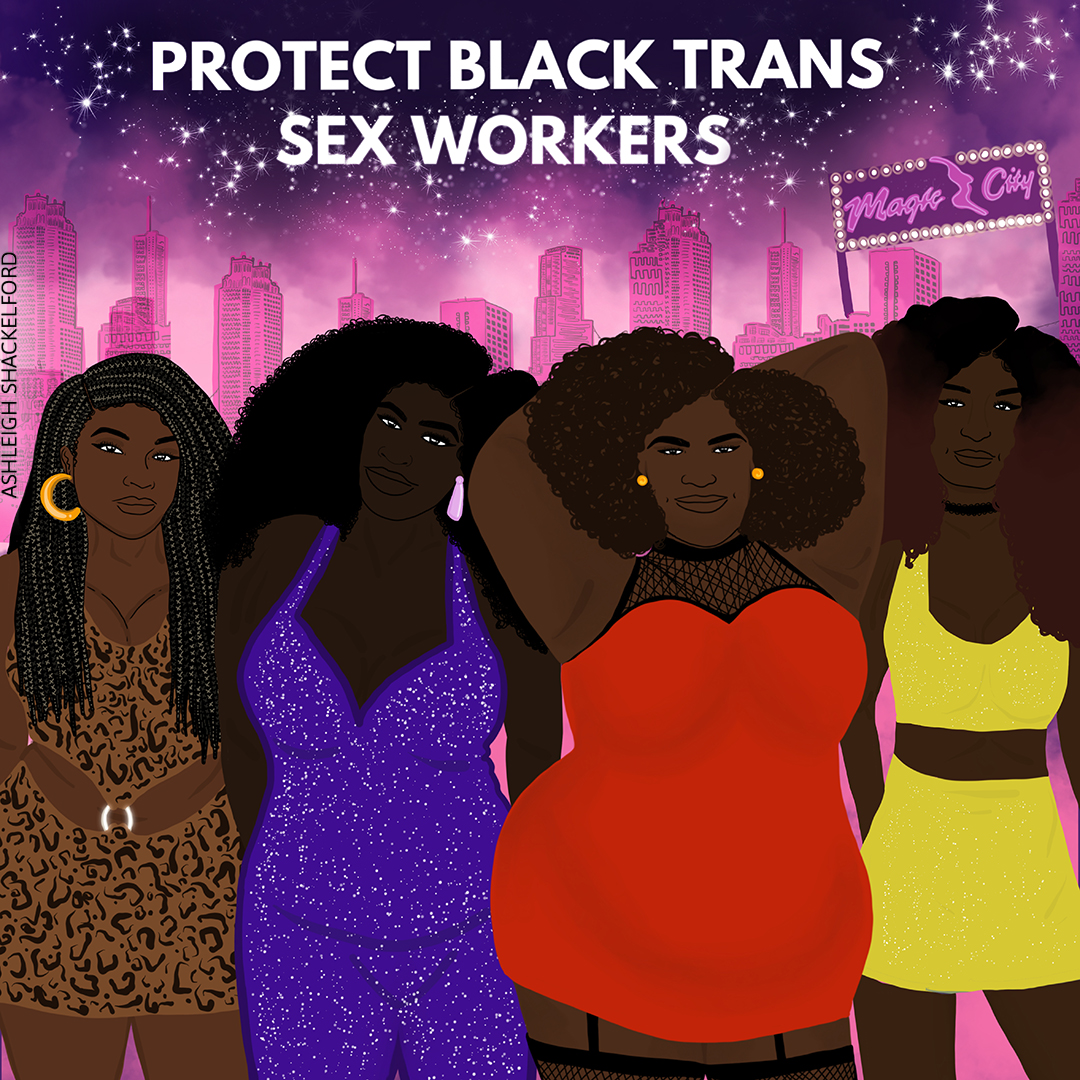With Women’s History Month underway, our country has a lot to grapple with regarding the status of women and non-binary people. We have a rich and vibrant herstory of women making the world better in science, technology, organizing, and pretty much every other aspect of life.
As we kick off this celebration of women’s historical and current contributions in society, I’m thinking about the connections between gender, media, and technology. At the center of these three issues is sex work. I’m grateful for the sex workers that have shaped the world we live in, people like Maya Angelou, Janet Mock, Cardi B, and Sylvia Rivera. In a digital age, our personal lives bleed into our online lives and vice versa. When women and non-binary people are not safe in the real world, it is felt online as well. Increasingly, women of color are targets of cyber violence, and sex workers, in particular, have increasingly become the target of surveillance and online doxing. On March 3rd, people around the world honored International Sex Worker Rights Day, a day to mourn those lost to violence, to mobilize for safety from policing, and a day to advocate for the rights of sex workers who are parents, students, and members of our communities. The day was a reminder that our society has a long way to go to de-stigmatizing sex work.

People enter the sex trade for a lot of reasons—by choice, for economic survival, because of lack of access to other work, or because they enjoy traveling and making money. About a year ago, the federal government passed a bill package with the intent to support survivors of sex trafficking. SESTA (Stop Enabling Sex Trafficking Act) and its partner bill, FOSTA (Fight Online Trafficking Act), have done more harm to online speech and have created barriers for sex workers to screen clients in order to work safely. This conflation of sex work and sex trafficking is dangerous because these issues are not binary and with the increasing censorship of sexuality online, sex workers are experiencing increased surveillance and criminalization.
Sex trafficking is the forced labor of a person for sex via fraud and coercion. Sex work is the consensual trade of sex between adults. SESTA/FOSTA’s criminalization makes it harder for survivors of trafficking to get support and seek justice. SESTA/FOSTA also assumes that the state can care for survivors of trafficking where in many cases, law enforcement and immigration officials are perpetrators of sexual violence. When federal governments encourage a “see something say something” culture, how do we stop the policing of bodies—Black, brown, indigenous, femme, trans, and gender non-conforming—that are already overly policed?
SESTA/FOSTA has become a digital barrier for sex workers, a key way sex workers rights intersects with the greater media justice movement. Technology can reduce harm by helping sex workers get the information they need to remain safe while working. Online platforms allow them to report “bad dates” who have caused harm to sex workers. Much of their work is orchestrated via the internet, cell phones, community forums, and encrypted messaging systems, while online advertising can help sex workers further promote their services.
However, several websites and apps have now changed their policies and/or platforms have been shut down altogether as a result of these two bills, including: Facebook, Tumblr, Craigslist, Paypal, Patreon, Venmo. The list goes on. Even pre-SESTA/FOSTA, our government was quietly surveilling online platforms where people were buying and selling sex. The shut down of Backpage was a glimpse of what the FBI can do to any online platform. With so many online platforms changing their policies, sexuality has increasingly become censored and algorithms have continued to work against marginalized communities online.
Digital rights activists have taken action, LGBTQ activists have mobilized, and sex workers across the country have continued to build safety for their community. Last year, the Electronic Frontier Foundation sued the United States Department of Justice to have SESTA/FOSTA declared unconstitutional. Our Network members at Black Lives Matter DC, Forward Together, BYP 100, Stop LAPD Spying, and Global Action Project, are connecting sex worker rights to their larger pursuit of gender justice, racial justice, media justice, LGBTQ justice, and interrupting the police state. With our government monitoring what we watch online, and the growing complexity of this stalker state, we must remain in solidarity with sex workers.



